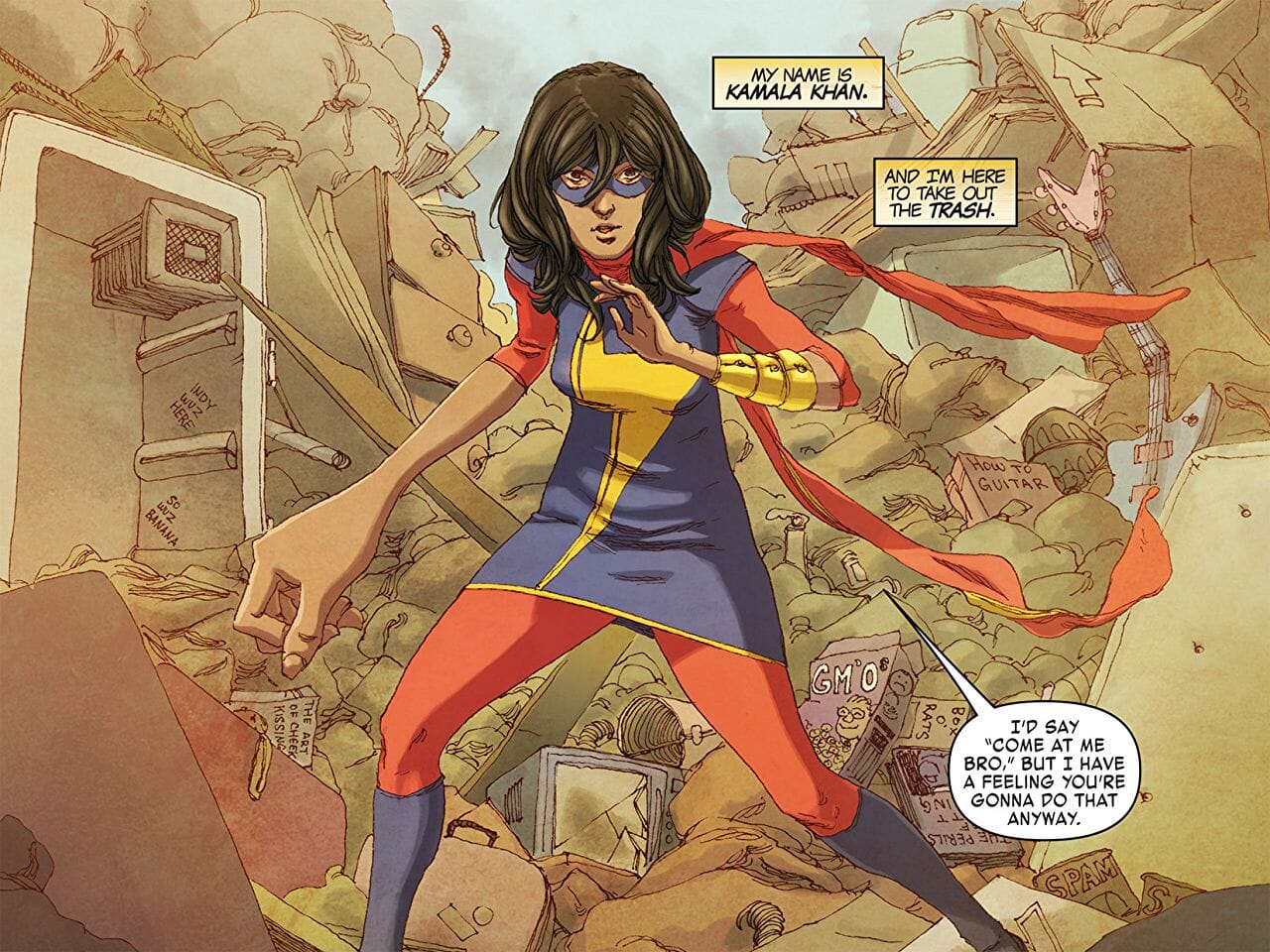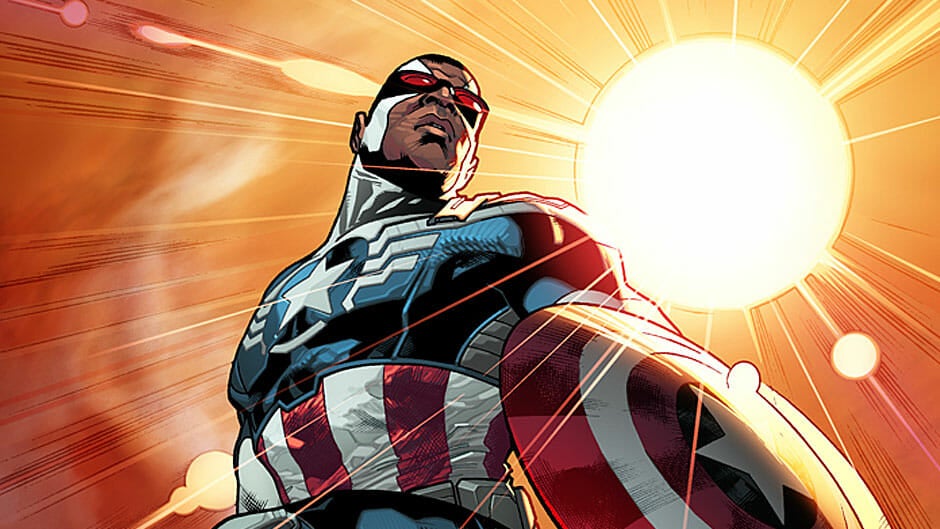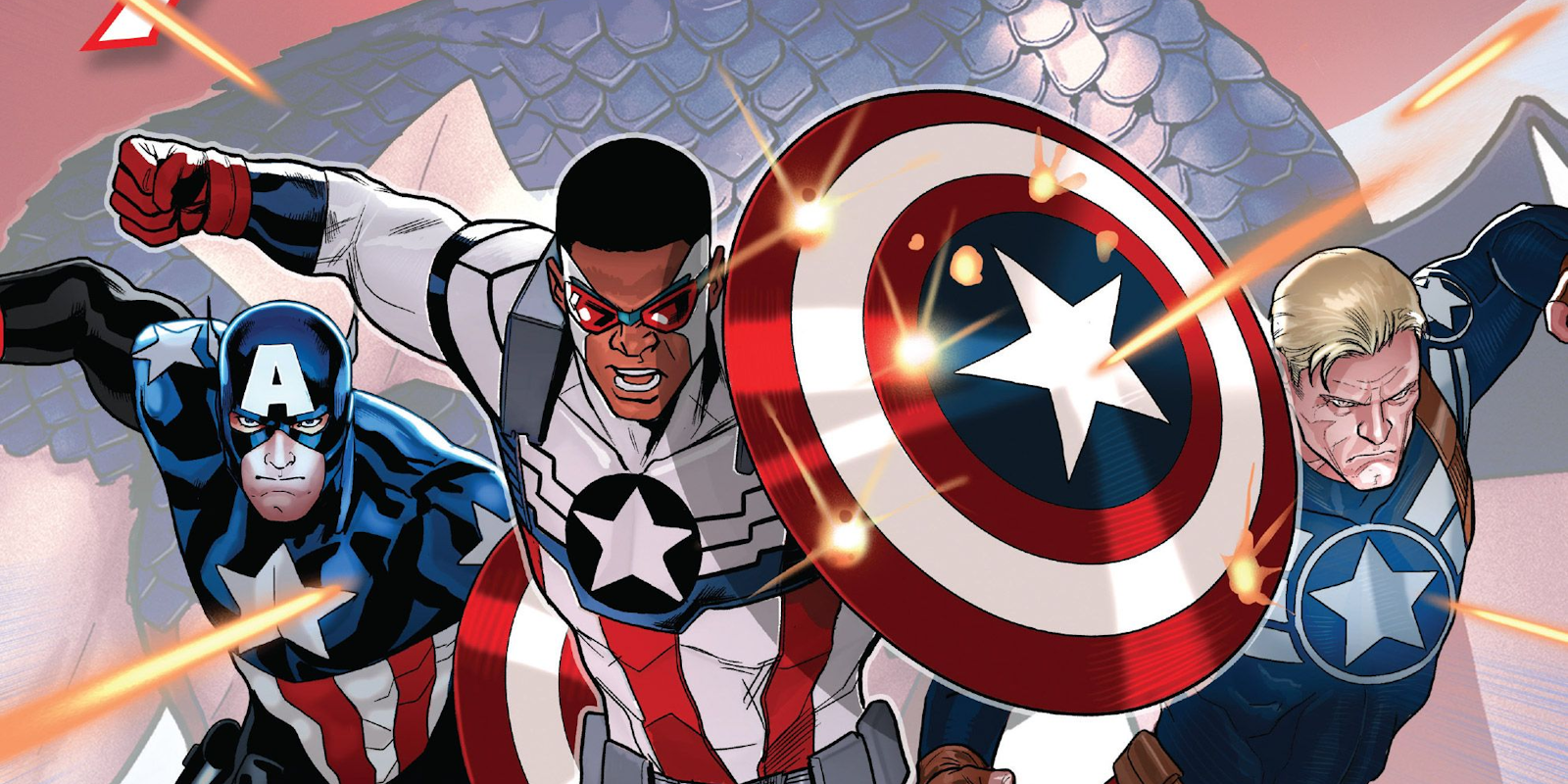While Marvel Studios makes bank at the box office, Marvel comics are in a slump. According to David Gabriel, Marvel‘s VP of Sales, “diversity” is to blame.
“What we heard was that people didn’t want any more diversity,” he said at Marvel’s retailer summit last week. “They didn’t want female characters out there.”
“I don’t know that that’s really true, but that’s what we saw in sales. We saw the sales of any character that was diverse, any character that was new, our female characters, anything that was not a core Marvel character, people were turning their nose up against.”
He also discussed economic factors that might lead to a dip in sales, including an oversaturated market. But the “diversity” quote was the part that really blew up, prompting responses from fans, comics critics, and even some Marvel creators. Gabriel later clarified his comments by highlighting the success of characters like Miles Morales and Moon Girl, but this did little to ameliorate his original point.
By blaming poor sales on diverse (i.e. non-white, non-male) characters, Gabriel played into a widespread fear among many superhero fans, a fear that Marvel isn’t really committed to combating racism and sexism and is still beholden to a stereotypical market of straight, white fanboys.
So, what’s up with Marvel’s sales?
Of the top 10 monthly comics according to retail sales figures for February 2017, only two were published by Marvel. Both are Star Wars spinoffs. The rest were published by DC, with one exception: Image Comics‘ The Walking Dead. If you expand to the top 20, you’ll find two more Marvel titles: The Amazing Spider-Man and Inhumans vs. X-Men.
Compared to DC, Marvel comics are tanking. However, monthly comics are also selling less across the board, with bestsellers shipping about 100,000 copies a month. In the early 2000s, that would’ve been 150,000. In the ’90s, 200,000 or more.
To outsiders, this will sound utterly bizarre. Superheroes—especially Marvel heroes—dominate the pop-culture landscape. So why aren’t people buying the actual comics? To understand this, let’s take a look at Raina Telgemeier, the reigning queen of graphic novel publishing in the U.S.
Telgemeier writes Judy Blume-esque books aimed at tween girls. Her breakout graphic novel, Smile, is in its 240th week on the New York Times bestseller list. That’s over four damn years.
Imagine you’re a 13-year-old girl who loves Raina Telgemeier. You’ve seen a couple of Marvel movies, and they inspired you to check out Ms. Marvel, Marvel’s most popular comic about a teen girl. $3.99 per month is too expensive, so you buy a trade paperback—a collection of five issues bound together.
From a sales perspective, you are now functionally meaningless. Comic sales are judged by the number of monthly issues sold in stores. If a comic sells badly, it may be canceled after six or eight issues, long before the trade paperback is published. Oh, and print sales are prioritized over digital sales. Ideally, if you want your favorite comic to stay afloat, you should preorder it from a store.

If this sounds unnecessarily byzantine, that’s because it is. There’s no way for new readers to know about preordering print comics. And those “diverse” comics that a Marvel exec just blamed for poor sales? They’re aimed at new readers—new readers who may prefer the convenience of digital comics. (Or maybe they’ve witnessed harassment at their local comic store or can’t afford to spend $3.99 per issue.)
Are Marvel fans really rejecting “diverse” stories?
Marvel spent the past few years loudly proclaiming its commitment to diversity, hiring high-profile creators like Ta-Nehisi Coates and Roxane Gay, and rebooting A-list titles with new characters who aren’t white men.
According to David Gabriel, readers simply prefer white male heroes like Peter Parker. It’s true the original Spidey outsells Miles Morales, just like Thor outsells his female counterpart. But they’re beloved characters with an established audience, and there are plenty of unpopular “white guy” comics as well.
Gabriel’s comments suggest a fatalistic belief that diversity is a failed experiment. This sucks from an ethical standpoint, because diverse comics could be an effective method of combating discrimination in the industry. Most of Marvel’s “diverse” reboots—Spider-Man, Captain America, Thor, and Iron Man—are still written by white men.

Marvel is in the middle of a political controversy
In comics fandom, there’s one complaint that crosses all political divides: People are sick of crossover events. They disrupt ongoing storylines, and while some crossovers achieve iconic status, they’re more often perceived as a cynical attempt to drive up sales
With minimal breathing room after 2016’s Civil War II, Marvel has five or six events planned for 2017. The biggest is Secret Empire, a controversial Hydra Captain America spinoff, promoted with a publicity blitz including trailers aired before Guardians of the Galaxy, Vol. 2. Basically, Marvel is spending a ton of money to advertise a storyline that is already being criticized for its Nazi subtext. Meanwhile, comics like Moon Girl rely on word of mouth.
By choosing which comics are worth advertising to new readers, Marvel reveals its own priorities. The same goes for how it handles PR problems like the Hydra Captain America backlash, or the industry-wide problem of sexism and sexual harassment. All of this has an impact on sales.
Superhero comics need more diverse creators to succeed
Outside the bubble of superhero publishing, diverse creators are flourishing. Get Out, Hidden Figures, and the Fast and Furious franchise are huge box office hits. This week’s bestselling young adult novel is The Hate U Give, about a 16-year-old black girl who witnesses a police shooting.
Closer to home, women of color are bypassing traditional publishing to crowdfund their own comics to enthusiastic audiences online. In Marvel’s fan communities, hundreds of thousands of people read and write male/male romance fanfic. Admittedly, fanfic is free, but fans cheerfully pay for non-profit slash zines, cosplay outfits, and merchandise. Would they buy a queer Marvel romance comic? Maybe it’s time to find out.
These audiences clearly exist; Marvel just needs to welcome them into the fold. Try hiring more diverse creators instead of handing five or six books to the same old guys. Advertise comics in an accessible way to new readers. Find some way to sell comics cheaper than $3.99. Pay attention to the digital market possibilities. Otherwise, audiences are clearly willing to go elsewhere.


